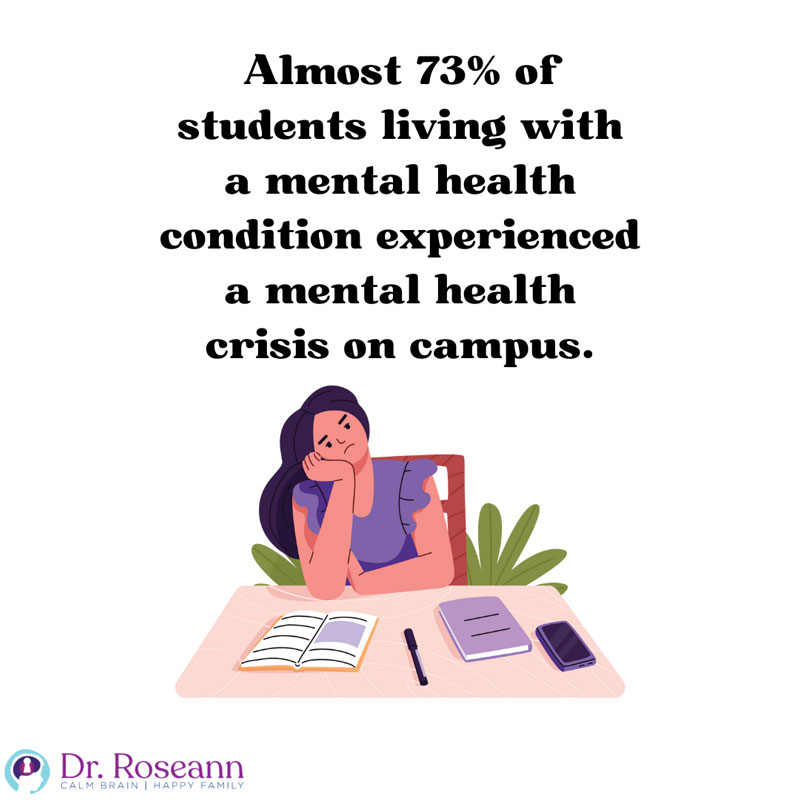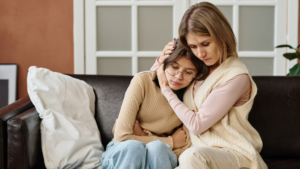The Surge of Failure to Launch Syndrome
Twenty-four million of those aged 18 to 34, lived under their parents’ roof in 2015, according to the US Census. That’s a third of young people! There has been a definitive cultural shift resulting in more young adults living with their parents. Fear of failure in American teens and young adults, causes them to delay independence, thus creating a major stumbling block in our otherwise success-driven society. Often, this age group is referred to as emerging adults, based on the delay in their transition from dependence to independence. Even their language reflects this shift as the term “adulting” is used to describe moments of responsible behavior. Growing up is viewed as an optional choice rather than a necessity of life.
What is Failure to Launch Syndromes?
Failure to launch syndrome is the unofficial name for an increasingly common problem among young adults who are either ill-prepared or unwilling to leave the family home and begin their life journey toward an independent life. The increase in this phenomenon coincides with a rise in mental health issues faced by children and teens. 22 percent of American teens experience a significant mental health issue before age 18.
These same teens typically demonstrate a history of difficulty with independent learning in academic or social areas or with stress management. To achieve success with tasks and academic endeavors, they often need extra support. Some might even master academic skills well enough to get good grades, yet struggle with independent living skills.
Conditions such anxiety, OCD, PANS/PANDAS, Lyme, depression, oppositional defiant disorder, and autism are common diagnoses for teens and young adults who fail to launch. Their clinical issues and often chronic long-term stress hold them back from being successful at college, work, or in relationships.
An increase in failure to launch syndrome correlates with changes in parenting that rejects promoting independent behaviors and prioritizes stress avoidance. Our culture has embraced a style of parenting that shields children from discomfort; thus depriving young adults of valuable experience managing the sometimes uncomfortable feelings that come with independence.
Wendy Mogel’s groundbreaking book, “Blessing of a Skinned Knee” discusses a child ’s need to experience failure to develop the ability to manage frustration which ultimately builds self-control and independence. Failure to launch adult children often have a history of low-stress tolerance and well-meaning parents inadvertently contribute to their child’s fear of failure. As these teens or young adults enter the workforce or attempt to go to school, they often experience failure due to immature self-regulatory skills. There’s no calling a tutor for work, and a college professor isn’t going to modify the curriculum.
What Are the Symptoms of Failure to Launch?
Young adults sufferings from failure to launch to syndrome experience a variety of symptoms that often result from lack of or improper mental health treatment. Symptoms of failure to launch include more than just an obvious desire to not leave home and be cared for by a parent. Young adults with FLS often display anxiety that affects how they deal with stress, interact with others, and take action.
They are often immobilized by fear to the point that are unwilling to do anything that puts them outside of their comfort zone and thus are unable to do much more than live at home. These young adults often have very poor communication skills, which makes helping them to move forward even harder.
Common Failure to Launch Behaviors
- Lack of motivation
- Poor work ethic
- Lack of self-regulation
- Inconsistent or poor grades
- History of anxiety or self-esteem issues
- Easily stressed or upset
- History of mental illness or mental health issues
- Doesn’t like working or learning outside of the comfort zone
- Low stress tolerance
- Entitled attitude
- Attentional or executive functioning challenges
- Social skill deficits/social isolation
- Can’t hold a steady job
- Lives with parents
- Tried to launch (college, employment) but failed
- Financial dependency
- Excessive marijuana usage
- Gaming addiction
- Resistance or refusal of help
- Lack of insight into their behavior
- Poor problem-solving skills
- History of academic or social difficulties in high school
What Causes Failure to Launch?
There are many reasons young adults struggle to transition to adulthood. Young people with FLS display delayed maturation in areas that prevent them from leaving the nest. They often lack the healthy social and coping skills required to successfully step out on their own. Many of these children experienced significant delays achieving social, emotional, or learning milestones, while for others, the fear of independence surfaced later in life.
The ability to self-regulate begins as an infant. For many young adults who fail to launch, managing stress has been a challenge their entire life. Parents wait with bated breath for maturity to develop, erroneously thinking it will happen when they go off to college or gain employment. Unfortunately, there is no single trigger or magic moment for this life skill. If one doesn’t learn to manage stress independently, then life remains hard.
All teens and young adults with FLS have poor executive functioning skills or in other words they don't ever “see” the end result and therefore have no idea of how what they are doing today connects to a larger goal. These kids lack strategic organizational and problem solving skills and instead rely on adults to help them or just passively do nothing because they get stuck.
Common Causes of Failure to Launch Syndrome
- Low Self-esteem
- Anxiety
- Depression
- Unsuccessful Differentiation (responsibility/rebellion)
- Perfectionism
- Substance Abuse
- Poor Social Skills
- Executive Functioning Issues
- ADHD
- Autism Spectrum Disorder
- Chronic health issues (PANS/PANDAS, Lyme Disease, etc.)
- Enabled parenting (Authoritarian or Permissive)
- Entitlement
- High sensitivity
- Lack of coping skills and resiliency
- Misinterpreting good grades in high school as an indicator of good mental health
- Not addressing an underlying mental health issue

When to Seek Help for Failure to Launch
Failure to launch young adults emotionally and financially drain their aging parents. Not only do they require the attention and support of a much younger child, but their lack of independence appears to have no end. What can a parent do to break this cycle? Fortunately, there are interventions that can help a family with a failure to launch a young adult child. We discuss them in depth in our next blog, What to do with a Failure to Launch Child.
It is important to realize that no matter how stuck you feel you are with your young child, it is never too late to get unstuck. Getting to the bottom of your child's clinical issues, breaking poor communication patterns, and getting your child the right treatment so his or her brain can regulate enough so they can pay attention and take action is how to overcome failure to launch syndrome. Dr. Roseann is a failure to launch syndrome expert and with her trademarked BrainBehaviorReset™ program, we combine brain-based therapies such as neurofeedback with counseling and coaching to help cultivate change.
It is important to realize that even if your child won't get help, you can get parenting help to give you the tools to move forward. Just like their kids. most FLS parents are stuck and frustrated and working with a professional is the first step to help break those stuck communication and behavioral patterns that are contributing to your child being frozen.
Citations:
Merikangas, K. R., He, J. P., Burstein, M., Swanson, S. A., Avenevoli, S., Cui, L., Benjet, C., Georgiades, K., & Swendsen, J. (2010). Lifetime prevalence of mental disorders in U.S. adolescents: results from the National Comorbidity Survey Replication–Adolescent Supplement (NCS-A). Journal of the American Academy of Child and Adolescent Psychiatry, 49(10), 980–989. https://doi.org/10.1016/j.jaac.2010.05.017
Mogel, W. (2001). The Blessing of a Skinned Knee: Using Timeless Teachings to Raise Self-Reliant Children. Scribner.
Vespa, J. (2017). Jobs, Marriage and Kids Come Later in Life. US Census. https://www.census.gov/library/stories/2017/08/young-adults.html
Always remember… “Calm Brain, Happy Family™”
Are you looking for SOLUTIONS for your struggling child or teen?
Dr. Roseann and her team are all about solutions, so you are in the right place!
There are 3 ways to work with Dr. Roseann:
You can get her books for parents and professionals, including: It’s Gonna Be OK™: Proven Ways to Improve Your Child’s Mental Health, Teletherapy Toolkit™ and Brain Under Attack: A Resource For Parents and Caregivers of Children With PANS, PANDAS, and Autoimmune Encephalopathy.
If you are a business or organization that needs proactive guidance to support employee mental health or an organization looking for a brand representative, check out Dr. Roseann’s media page and professional speaking page to see how we can work together.
Dr. Roseann is a Children’s Mental Health Expert and Therapist who has been featured in/on hundreds of media outlets including, CBS, NBC, FOX News, PIX11 NYC, The New York Times, The Washington Post,, Business Insider, USA Today, CNET, Marth Stewart, and PARENTS. FORBES called her, “A thought leader in children’s mental health.”

She is the founder and director of The Global Institute of Children’s Mental Health and Dr. Roseann Capanna-Hodge. Dr. Roseann is a Board Certified Neurofeedback (BCN) Practitioner, a Board Member of the Northeast Region Biofeedback Society (NRBS), Certified Integrative Medicine Mental Health Provider (CMHIMP) and an Amen Clinic Certified Brain Health Coach. She is also a member of The International Lyme Disease and Associated Disease Society (ILADS), The American Psychological Association (APA), Anxiety and Depression Association of America (ADAA) National Association of School Psychologists (NASP), International OCD Foundation (IOCDF) International Society for Neurofeedback and Research (ISNR) and The Association of Applied Psychophysiology and Biofeedback (AAPB).
© Roseann-Capanna-Hodge, LLC 2023
Disclaimer: This article is not intended to give health advice and it is recommended to consult with a physician before beginning any new wellness regime. *The effectiveness of diagnosis and treatment vary by patient and condition. Dr. Roseann Capanna-Hodge, LLC does not guarantee certain results.













